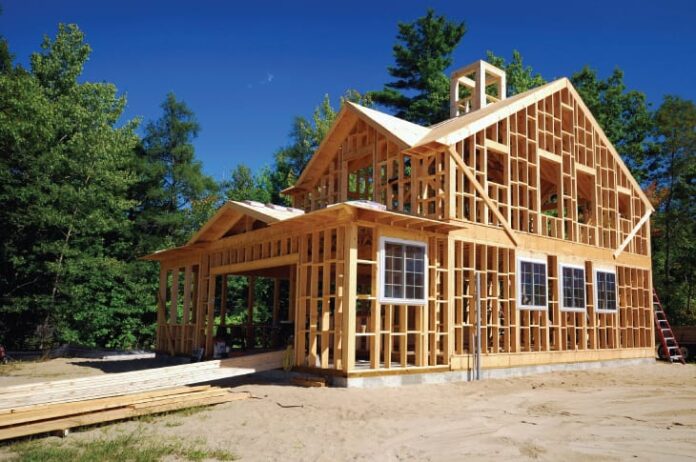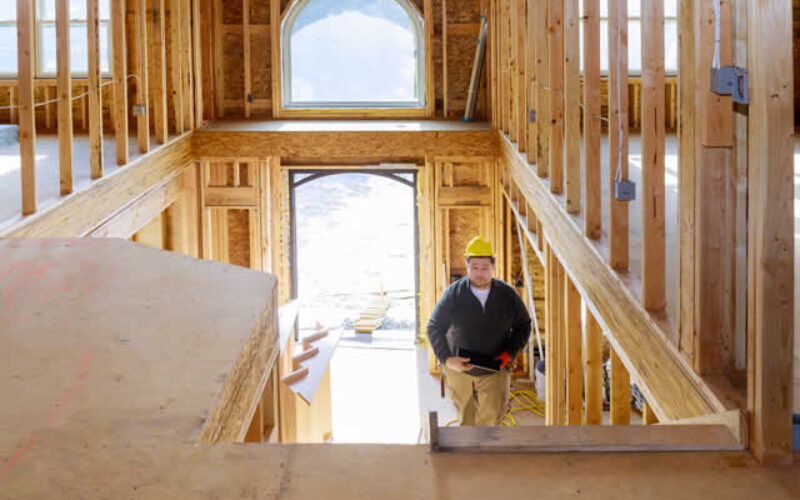Having a home is a life goal that takes time, effort, and dedication to attain. It may take years of saving up, designing, and planning before the actual construction is started. With all the excitement, confusion, and other circumstances that may arise at the beginning of the project, first-time homeowners sometimes lose sight of what’s important and make costly and irreversible mistakes. At times, these poor decisions could get in the way of having a home that would give them the comfort, privacy and security that they want. This is why homeowners must know their priorities, consider important factors, and carefully weigh their options before setting the plan in motion.
One common mistake among first time homeowners is failing to take the moving process into account. At times, they are solely focused on the construction of the new house that they fail to make preparations needed to for moving, such as booking moving services, preparing mobile storage containers, etc. Though these may seem like minor details, they can still cause problems if not done appropriately.
If you’re thinking about building your own home in the future, it may be helpful to learn about the common mistakes first-time homeowners make. You can use the following pointers as a guide to avoid committing the same errors and overcome them as needed:
- Poor Planning
There are several factors that you should consider if you’re planning to build your new home. In some cases, new homeowners fail to consider these factors, which leads to problems later on. Here are three factors that could determine the success of building a dream home but are commonly overlooked:
- Lifestyle – Your lifestyle can determine the ideal design of your home and what to prioritize. For example, if you love having guests over, you’ll need to have specific areas in your house where you can host gatherings. If you love to cook, you may have a specific kitchen design to consider when creating the floor plan. It could be costly and inconvenient to make last-minute adjustments if these preferences are not taken into account. Furthermore, it could be disappointing to realize that the things that would make your house feel like home couldn’t become part of it because of the unplanned circumstances.
- Future Plans – Will your family need more bedrooms in the future? Do you need a bigger garage to accommodate new vehicles that you’re planning to buy? Are you planning to add a roof deck after a few years? These are some questions you need to ask when building your home from scratch. Also, consider the necessary adjustments and preparations incorporated into your current house plan. Additionally, it may not be time and cost-efficient to remove certain parts of the house already in place to make a way of features that you’ve had in mind beforehand.
- Features And Amenities – If your dream house comes with specific features and amenities such as a garden, swimming pool, outdoor kitchen, etc., it will be best to include them in the plan early on to ensure that they will be cohesive with the other elements in the house. It will also be helpful to determine how much resources would be required to complete them. Many homeowners make the mistake of adding key features to the house as an afterthought, which could derail or delay construction and add to the expenses as well. On the other hand, you may also need to trim down some features that may not be as useful later on. While adding a game room or a home gym may sound interesting, you may have to think about how often they’ll be used before including them in the final plan. Under-utilized rooms are wasted space that you can allocate for other things instead.
- Poor Location
Your home’s location could greatly affect your day-to-day life and your family. However, homeowners usually compromise the quality of the location for a lower price when building custom homes. Although buying an inexpensive piece of land may sound like a good deal at the moment, you also have to think about the kind of neighborhood you’ll have. It is why it’s crucial to choose a location ideal for you and your family’s lifestyle. Moreover, you also need to assess the size and value range you can conveniently manage and afford.
- Having Inadequate Professional Services
Creating a home from scratch requires a whole team of experts and professionals who can help you design and build your home according to your requirements, preferences, and resources. Commonly, homeowners fail to employ sufficient professional support before they begin the planning and construction process. It can be a costly mistake to make as it’s crucial to have the right people working on your home project to ensure that things will be carried out as planned.
Given this, you’ll need to take time and allocate resources to choose quality designers, contractors, and home builders who you can trust and who can effectively work as a team, too. With this in mind, it could be helpful to talk to other homeowners who can refer you to design professionals and home builders that they know in your area. You can also read online reviews and study work portfolios to see if a potential worker or contractor’s expertise and style will be a good match for your project.
- Poor Decision-Making
In building a custom home, owners may be faced with many options and would have to make numerous decisions before construction takes place. As such, making wise and timely decisions is important to avoid delays in the project schedule. However, it’s quite common for new homeowners to constantly be in doubt and be unable to make timely decisions which could derail the project.
In this regard, a timely decision is often the best one a homeowner can make. If you’re feeling doubtful or overwhelmed with the multitude of selections you’ll have to decide on, it may be helpful to consult the professionals working on your project as they know it well and they may have suggestions that can be useful to you.
- Poor Budget Planning
As with any other project, unforeseen circumstances should also be accounted for in the planning especially when it comes to allocating budget. Experts advice to have a contingency fund at hand to prepare for such situations. Setting aside budget for emergency purposes and added costs is a normal part of budgeting when custom-building a home. Usually, experts recommend preparing between 10% to 20% of the original budget for overages.
Conclusion
Building your dream house may be one of the most expensive and time-consuming projects you’ll ever have. It can be a daunting task for anyone, but it’s also an aspiration for many to have a customized home you can be proud of. While errors may be inevitable, it will be beneficial for you to gather as much information as you could and plan for possible hurdles you may encounter along the way. It may not be an easy project to take on, but turning your dream home into a reality may be worth all the trouble.



















